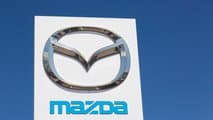Greetings, everyone. I bought my 2019 CX-5 Signature in mid-May of that year, so I'm coming up on my 36 months. (I'm a little over 34K miles.) I did not buy the extended warranty at that time -- actually, no one even tried to sell me one; I guess I'm THAT intimidating? -- but now I find myself thinking about it. I contacted the finance guy at my local dealership (where I bought the car new), and he gave me the following quotes:
*5 years from the contracting date ending at 100K miles on the odometer -- $2,163 + tax
*7 years from the contracting date ending at 125K miles on the odometer -- $2771 + tax
*8 years from the contracting date ending at 125K miles on the odometer -- $2871 + tax
All of these are bumper-to-bumper, not including oil changes, tires, rotations, wipers, battery, brake pads, rotors and bulbs.
OK, I know I said "question" in the subject line, but I actually have more than one:
1. Does my car already have a 5-year/60K miles power train warranty? (I'm in the US.) What does that cover?
2. The company issuing these extended warranties is called "Zurich." Is this Mazda's standard underwriter? Are they reputable/reliable?
3. Do these prices seem typical?
4. How much should I be able to negotiate them down?
5. Is the "contracting date" the date I purchase the extended warranty?
6. The guy at the dealership said that I could still buy an extended warranty after the original 3-year/36K runs out, but then my vehicle would be classified as "used," and the warranty would cost more. Is this true?
Oh, and while I'm not going to ask "Is an extended warranty worth it?" (I don't want to totally violate the terms of my subject line), I would welcome any feedback on that question, too. For what it's worth, I have already decided that this vehicle, which I love, will nonetheless be my last non-EV, so I will probably be keeping it for quite a while.
Thanks!
*5 years from the contracting date ending at 100K miles on the odometer -- $2,163 + tax
*7 years from the contracting date ending at 125K miles on the odometer -- $2771 + tax
*8 years from the contracting date ending at 125K miles on the odometer -- $2871 + tax
All of these are bumper-to-bumper, not including oil changes, tires, rotations, wipers, battery, brake pads, rotors and bulbs.
OK, I know I said "question" in the subject line, but I actually have more than one:
1. Does my car already have a 5-year/60K miles power train warranty? (I'm in the US.) What does that cover?
2. The company issuing these extended warranties is called "Zurich." Is this Mazda's standard underwriter? Are they reputable/reliable?
3. Do these prices seem typical?
4. How much should I be able to negotiate them down?
5. Is the "contracting date" the date I purchase the extended warranty?
6. The guy at the dealership said that I could still buy an extended warranty after the original 3-year/36K runs out, but then my vehicle would be classified as "used," and the warranty would cost more. Is this true?
Oh, and while I'm not going to ask "Is an extended warranty worth it?" (I don't want to totally violate the terms of my subject line), I would welcome any feedback on that question, too. For what it's worth, I have already decided that this vehicle, which I love, will nonetheless be my last non-EV, so I will probably be keeping it for quite a while.
Thanks!
Last edited:

